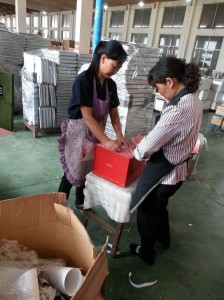If you have experience in importing from Chinese suppliers, you know it’s very common that quotes are not handled with precision.
There are some basic yet deep-rooted reasons why suppliers in China quote incorrectly.
Precision: Suppliers in China do not quote with precision. The mindset is that the initial quote is not something that is going to make or break the project. The quote is viewed as sort of the starting point of discussion.
Details and specifications are not something firm that can readily be concreted and confirmed. Facts are “loose” and require back-and-forth.
Western buyer thinks: the quote needs to be as exact as possible so I can quote my buyer or rock n’ roll on these numbers so that we can close the job. Let’s get this right and get moving!
Chinese supplier thinks: here’s the quote and if it’s not exact or if you find any mistakes, holler back at me and we’ll get you fixed up.
From the suppliers’ mindset, nothing rides on that first quote. Whether or not you come back isn’t based on their quoting method.
The concept of going through an inquiry “with a fine-tooth comb” is not a common practice with suppliers in China.
The salesperson you work with from the supply company or factory doesn’t spend much time proofreading the quote or assuring they are quoting as per your specifications.
Remember, most suppliers in China obviously have a China-centric view of doing business. How the majority of business was done for decades in China is that if you want to buy from someone, you’ll go visit them. You know them, you sit down with them.

Suppliers in China can be set in their ways. In many aspects, your inquiry is an interruption to their normal work process.
Suppliers in China Don’t Read Emails: Suppliers simply to do not read and process the entire inquiry you emailed. If the RFQ has 8 critical points, they may retain 5. The language barrier is a part of this but not the main issue. Connected to the above concept of precision, suppliers quickly scan the email and think they got it and then act based on incomplete information.
The supplier doesn’t think that this email is in English and I better read it with extreme care. Since the email is in English, it actually causes them to be less thorough.
They Don’t Understand the Inquiry: We all have questions and there is no shame in that. The problem is that when suppliers have questions, typically, they won’t ask!
They will usually make up an answer to any unknowns and go with that. Or in typical China fashion, when there are points that should bring up red flags, the suppliers do not realize that they should even have questions! This is where cultural aspects can affect manufacturing success.
A silent supplier is one that is not highly engaged with the project. If the supplier doesn’t have questions, let that bring up red flags.
Assuming on the Request: The supplier generally starts off from the point of assuming that what you’re requesting is the same as what everyone else requests.
If they normally quote for the low-cost markets, but you’re asking for a higher-end product and you give the supplier specs for a higher-end product – then guess what… they are still quoting you a lower-end item because that’s what they normally do.
If your inquiry requests 1 unit per inner box packing and the supplier generally packs in bulk – then guess what…your quote is based on bulk packing. The suppliers can get stuck in a to-do list mentality from the mass amount of quotes they send out to importers. Which leads to my final point…
Correct Quoting Requires Investment: Lastly, and this is the area where I can more empathize with the suppliers in China; precision and carefulness require a time and energy investment (therefore cost investment).
If you never worked with this supplier before how do they know it’s worth the time and energy to quote you as exact as possible?
Have you requested frequent quotes from the supplier with a low ratio of closing the deal?
How important of a buyer are you to this supplier?
Does your inquiry have the “punch” that makes a supplier want to work with you?





China Sourcing Basics
Let me share what I've learned about China Sourcing.
Provide your email & receive free ebook: 40 Tips for Emailing China Suppliers.
I'll never spam. I'll share tips on Private Labeling, Sourcing and China Business.
You have Successfully Subscribed!